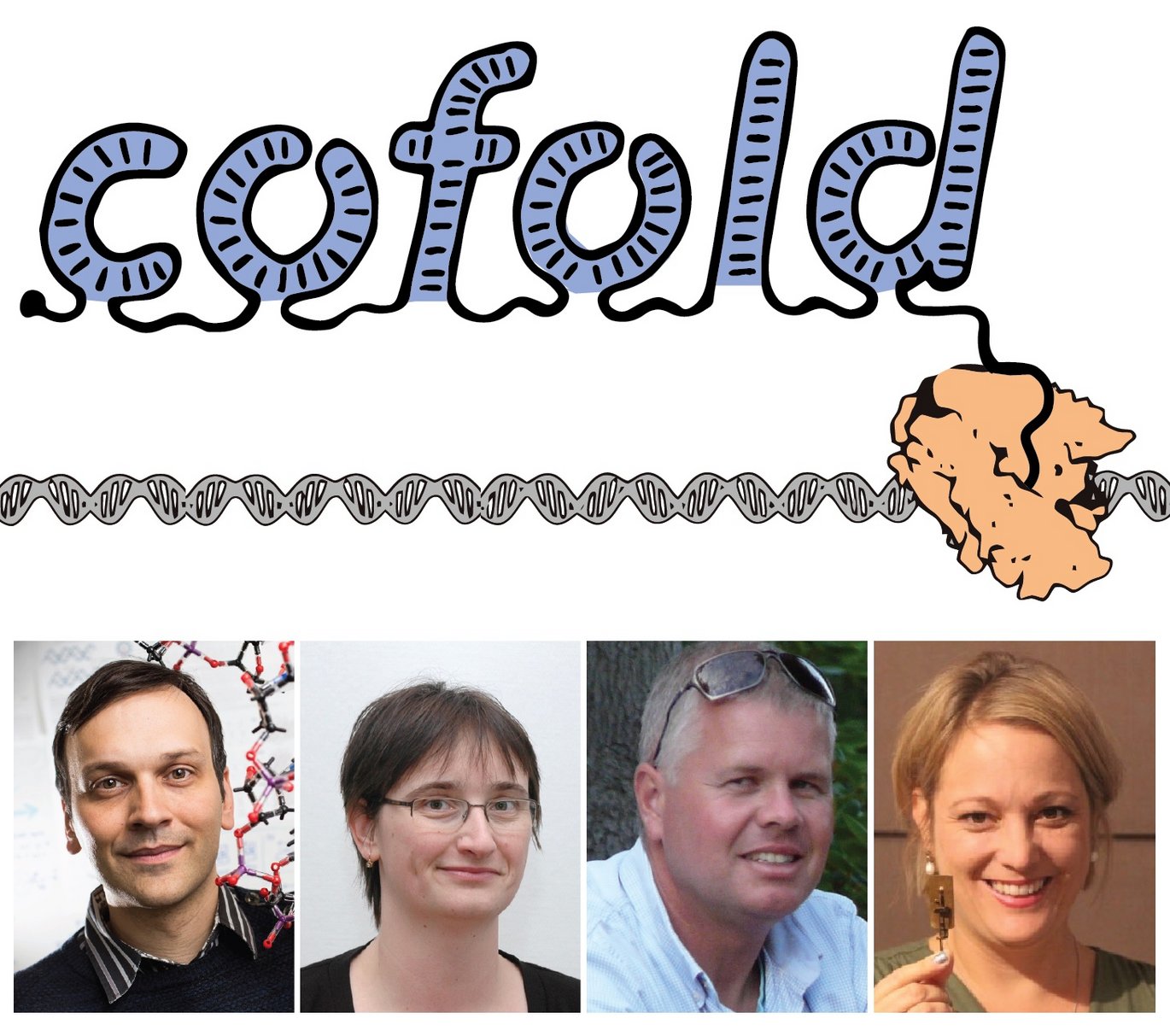New grant: Interdisciplinary team will elucidate the rules of RNA folding
Despite recent progress in predicting protein and RNA structure, we are still far from being able to design biomolecular structures that rival the complexity found in nature. A new consortium, COFOLD, funded by the Novo Nordisk Foundation, aims to elucidate the rules of RNA folding in order to design RNA molecules for applications in medicine and synthetic biology.

We have all heard of RNA molecules from their use in mRNA vaccines in the fight to put a stop to the coronavirus pandemic. Less known is the many central roles of RNA in the molecular mechanisms of our cells. The properties of RNA molecules is determined by the sequence of bases, that can carry the code for proteins or fold into complex functional shapes by basepairing.
Both mRNA vaccines and biological RNAs are folded simultaneously with being synthesised – a process known as co-transcriptional folding. However, researchers are still unable to reliably predict and/or design co-transcriptionally folded structures. Being able to do so would be of great significance to e.g. development of better RNA-based medicine.
Interdisciplinary approach to study RNA folding
A team of researchers, headed by Associate Professor Ebbe S. Andersen, has received funding from the Interdisciplinary Synergy Programme of the Novo Nordisk Foundation to establish the COFOLD consortium to study co-transcriptional folding. In COFOLD, they will combine their expertise in advanced methods in bioinformatics (Associate Professor Christian Storm Pedersen), physical chemistry (Associate Professor Victoria Birkedal), microbiology (Professor Ariane Briegel), and synthetic biology (Associate Professor Ebbe Sloth Andersen). By applying the latest machine-learning methods and time-resolved microscopy techniques, like cryo-electron and single-molecule fluorescence microscopy, they will develop computational methods to predict and design the dynamic process of RNA folding.
Applications in medicine and synthetic biology
The RNA design tools developed in the COFOLD project will be used to design RNA structures with advanced functionalities for use in medicine and synthetic biology. The project will use cryo-electron microscopy to determine the high-resolution structure of designed RNA particles, which is of importance for their use in RNA medicine. RNA sensor devices for application in diagnostics will be studied by single-molecule fluorescence microscopy to elucidate their mechanism of action. Genetically expressed RNA nanostructures will be investigated in their native environment inside cells using cryo-electron tomography, which will improve our ability to reprogram cells for synthetic biology applications e.g. for optimizing bioproduction of valuable chemicals.
Project name:
COFOLD - Co-transcriptional folding for RNA medicine and synthetic biology
Project period:
1 February 2022 – 31 January 2026
Grant:
The consortium, COFOLD, has received DKK 15 million from the Novo Nordisk Foundation through the Interdisciplinary Synergy Programme.
Project website:
https://cofold.au.dk/
Novo Nordisk Foundation - Interdisciplinary Synergy Programme
With the Interdisciplinary Synergy Programme, the Novo Nordisk Foundation seeks to support research projects across disciplines, organizations and national borders, in order to resolve novel interdisciplinary challenges in relation to the Foundation’s core science areas.
The goals of the research programme are:
- Pursue creative and novel, high-risk/high-gain interdisciplinary research ideas
- Provide long-term support of such novel interdisciplinary research ideas
- Stimulate an emerging interdisciplinary research culture that spans across scientific disciplines and techniques
- Break down or overcome the barriers that exist between the different disciplines
- Strengthen and internationalize Danish research
You can read more about the programme here.
For further information please contact:
Associate Professor Ebbe S. Andersen
Interdisciplinary Nanoscience Center (iNANO)
Department of Molecular Biology and Genetics
Email: esa@inano.au.dk
